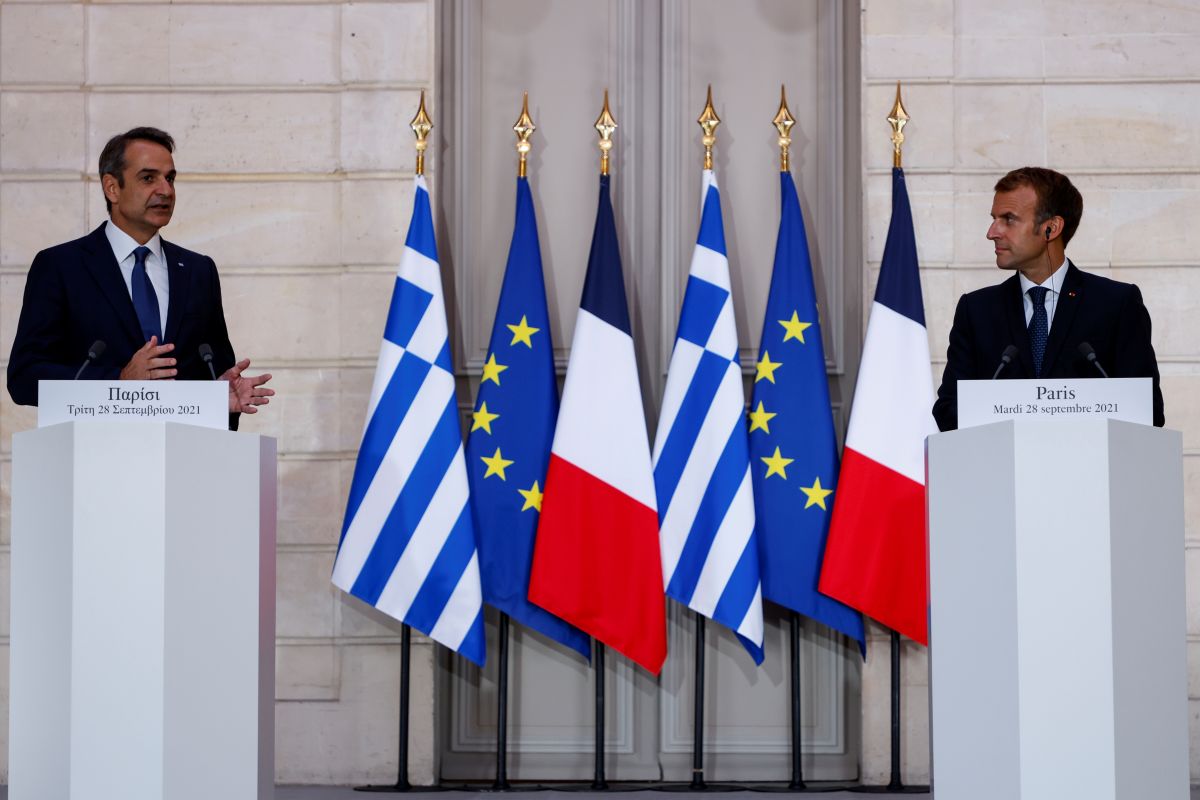Greece Votes in Early Parliamentary Elections
The pro-European, centre-right New Democracy party led by Prime Minister Kyriakos Mitsotakis, who has led Greece since 2019, decisively won the early parliamentary elections on 21 May. However, the party will not form new cabinet but will seek new early elections, which will be held according to a new electoral law. New Democracy hopes that the result will enable it to govern on its own. The temporary political crisis and rule by a technical government will be short-lived and will not change Greek foreign policy.
.jpg) LOUIZA VRADI / Reuters / Forum
LOUIZA VRADI / Reuters / Forum
Why were there early elections in Greece?
On 22 April 2023, at the request of the government, President Ekaterini Sakielaropulu dissolved parliament and announced new elections. The constitution allows this “for the purpose of renewing the popular mandate, in view of dealing with a national issue of exceptional importance”. According to the prime minister, Greece regaining its investment-grade rating—lost during the 2009 debt crisis—requires political stability. In fact, the political goal was to surprise the opposition, which was expecting elections within the constitutional deadline at the turn of June and July. As a campaign theme Mitsotakis portrayed an economy in which his government has been very successful—in 2022, Greece’s GDP grew by 5.9% and unemployment fell below 11%. In raising this issue, he effectively limited the significance of the topics raised by the opposition, such as the tragic railway crash near Larissa in February 2023 or a scandal revealed in November 2022 of eavesdropping by the special services on opposition politicians and journalists.
How will the balance of power in the Greek parliament change?
In the new term in the unicameral 300-seat Greek parliament, New Democracy remains the strongest party. However, it lost its majority, winning 41% of the vote and 146 seats, 10 fewer than before. The main opposition has been the populist and anti-globalist Coalition of the Radical Left-Progressive Alliance (SYRIZA). It won 20% of the vote and 71 seats, 16 fewer than in the last parliament. The third party is the pro-European and centre-left Panhellenic Socialist Movement-Movement for Change (PASOK-KINAL). It won 11.5% of the vote, almost doubling the number of MPs from 22 to 42. The elections strengthened anti-system factions. The Marxist-inspired Communist Party of Greece won 7% of the vote and 25 MPs, or 10 more. The extreme nationalist, anti-European and pro-Russian Greek Solution won 4.5% of the vote and 16 seats, or six more. The electoral threshold of 3% was not surpassed by the progressive Realistic European Disobedience Front, which had six MPs in the previous term.
Why does New Democracy not want to form a new government now?
After the results were announced, Mitsotakis proclaimed that he would not take the mission to form a cabinet entrusted to him by the president. He claimed that the election results indicated that citizens wanted a strong government for a four-year term, one capable of carrying out bold reforms. According to the constitution, Sakielaropulu will hand over the mission successively to the party leader of the second place finisher, SYRIZA, and, in turn, to the third place PASOK-KINAL, both of which, however, will be unable to gather the necessary majority. Then, the president will dissolve parliament and appoint an apolitical technical government that will organise new elections, which may take place at the end of June. Mitsotakis is striving for them because he assumes that voters will ensure his party independent rule, even if by then it will lose the trust of some voters. These elections will be held according to the new electoral law adopted in 2020 that will replace the current direct proportional system. It provides 20 to 50 additional seats for the winning party.
How might these elections affect Greece’s foreign policy?
The expected decisive victory of New Democracy in the next elections will mean the continuation of Greece’s current foreign policy. Its pillars will remain close cooperation with the largest states and institutions of the European Union, necessary for the final restoration of investment credibility, and the close bilateral military alliance with the U.S. and with France, a situation which is unfavourable to Turkey. Greece considers Turkish revisionism, intensified under the rule of the Justice and Development Party of the current President Recep Tayyip Erdoğan, to be the greatest threat to its security. The new Mitsotakis government will probably also not step back from confrontation with Turkey. Due to this, as the Greek economy strengthens, it probably will increase military spending—in 2022, it had already reached $8 billion, or 3.54% of GDP. It will probably also continue to support Ukraine discreetly—due to the strong pro-Russian sentiment of Greek society—with weapons and ammunition, and enable transit of supplies from the U.S.




